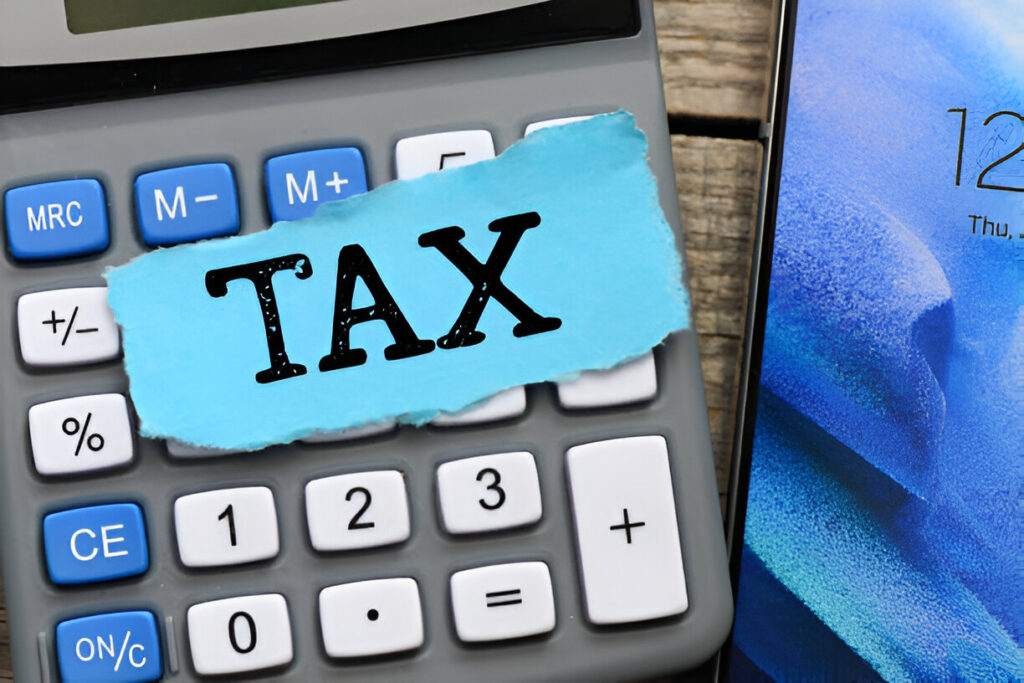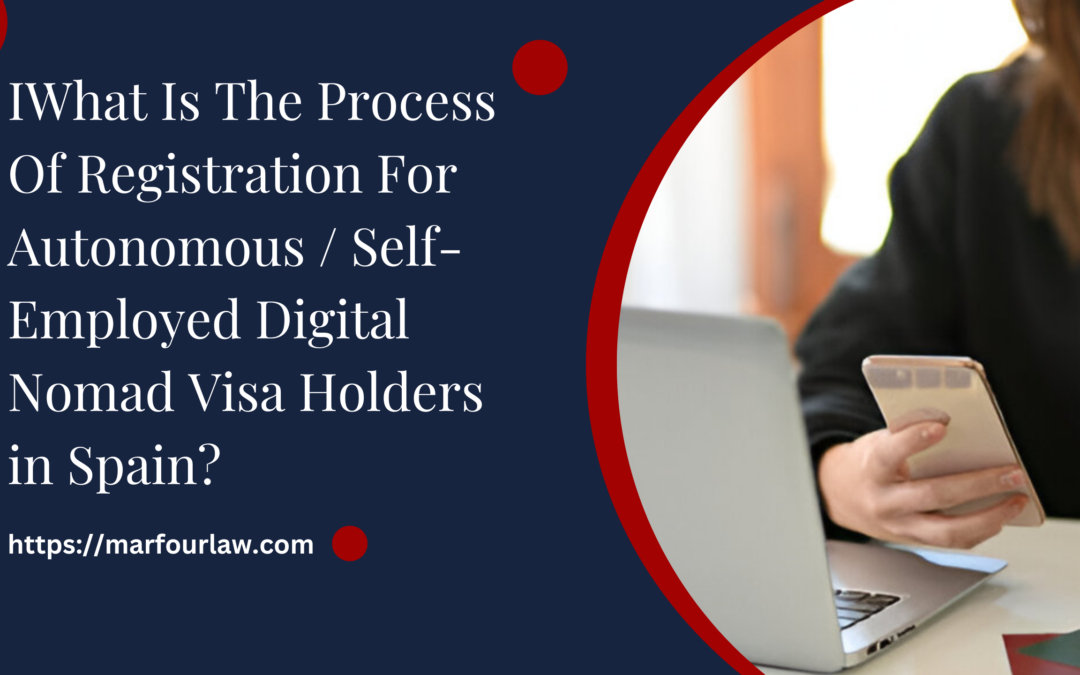Self-employed digital nomad visa holders in Spain are part of an emerging trend that’s reshaping the traditional workspace. If you’re a freelancer or entrepreneur looking to live and work in Spain while maintaining your career remotely, this visa might be the perfect fit for you. This guide will cover the essentials of the self-employed digital nomad visa in Spain, exploring everything from the application process to the benefits and requirements.
What is the Self-Employed Digital Nomad Visa Holders in Spain?
The self-employed digital nomad visa in Spain is crafted for freelancers and entrepreneurs who wish to live in Spain while working remotely for clients or companies outside the country. This visa allows you to blend work with the rich cultural experiences that Spain offers.
Concept of the Self-Employed Digital Nomad Visa
This visa is essentially a lifestyle choice for those who can manage their work from any location. It caters to individuals who run their own businesses or work independently and prefer the flexibility to work from different places. Unlike traditional work visas that often tie you to a specific employer or location, this visa offers more freedom. You can enjoy Spain’s beautiful environments—whether it’s the urban hustle of Madrid or the tranquil beaches of Valencia—while continuing to manage your business remotely.
For instance, if you’re a freelance writer working for clients across the globe or a software developer with remote contracts, this visa allows you to enjoy Spain’s diverse culture and scenery without the need to relocate your business operations.
Benefits of Holding This Visa
Holding the self-employed digital nomad visa comes with several advantages:
- Cultural Immersion: Spain is renowned for its rich history, vibrant culture, and stunning landscapes. This visa lets you immerse yourself in Spanish life while maintaining your professional commitments. Whether you’re exploring historic sites or enjoying tapas with locals, you get to experience Spain beyond the tourist spots.
- Professional Flexibility: The visa allows you to live anywhere in Spain while working for clients or companies based outside the country. This flexibility means you can choose the environment that best suits your work and lifestyle needs, whether it’s a bustling city or a quiet village.
- Potential for Long-Term Stay: This visa may also provide a pathway to longer-term residency options. If you decide you want to stay in Spain beyond the initial visa period, you could potentially apply for permanent residency or even Spanish citizenship, depending on your situation and length of stay.
- Tax Benefits: Depending on your specific circumstances and how you structure your business, you might benefit from favorable tax conditions. Spain’s tax regime can be advantageous for digital nomads, but it’s essential to consult a tax advisor to understand how it applies to you.
Overall, the self-employed digital nomad visa not only offers a way to live in a beautiful country but also provides a flexible work environment, allowing you to fully enjoy the Spanish lifestyle while continuing to advance your career.
Requirements for the Self-Employed Digital Nomad Visa in Spain
Getting the self-employed digital nomad visa in Spain involves meeting certain criteria and gathering essential documents. This visa is designed for those who are independent professionals, freelancers, or entrepreneurs working remotely for clients or companies outside of Spain. Here’s a detailed look at what you need to qualify and apply for this exciting opportunity.

Eligibility Criteria
To qualify for the self-employed digital nomad visa in Spain, you need to prove several key factors.
- Proof of Self-Employment: First, you must demonstrate that you are self-employed. This could be through evidence of your freelance work, contracts with clients, or ownership of your business. For Spanish freelance workers or those operating as an autonomo (a self-employed individual in Spain), it’s crucial to show that your business activities are well-established and you can sustain yourself financially.
- Financial Stability: You need to prove that you have enough financial resources to support yourself while living in Spain. This typically involves providing recent bank statements or proof of income from your work. The idea is to show that you’re financially secure enough to live in Spain without relying on local resources.
- Health Insurance: Health insurance is another critical requirement. You must have adequate coverage that is valid in Spain. This could be private health insurance or, in some cases, international coverage that meets Spanish standards. The insurance should cover both routine and emergency medical needs.
Required Documentation
When applying for the self-employed digital nomad visa in Spain, you’ll need to gather and submit various documents to support your application.
- Application Form: You will need to complete the visa application form. This form is typically available from the Spanish consulate or embassy in your home country or can be submitted online, depending on the process.
- Passport: A valid passport is required. Make sure your passport is up-to-date and has enough validity to cover the duration of your stay in Spain.
- Proof of Employment or Business: Provide evidence of your self-employment status. This can include business registration documents, contracts, or letters from clients verifying your freelance work. For those classified as autonomo, proof of registration with Spanish tax authorities or a similar entity might be needed.
- Financial Statements: Submit recent bank statements or financial documents showing that you have the financial means to support yourself while living in Spain. This includes demonstrating a stable income and financial independence.
- Health Insurance Proof: Include documentation proving you have valid health insurance. This is essential for ensuring you have access to healthcare while residing in Spain.
- Background Check: A criminal background check or police certificate from your home country may be required to ensure you do not have a criminal record. This helps to verify your suitability for residency.
- Cover Letter: Sometimes, a cover letter explaining your reasons for applying for the visa, your work situation, and your plans while in Spain can be helpful. This letter should detail why you chose Spain and how you meet the visa requirements.
By ensuring you meet these criteria and gather the necessary documentation, you can successfully apply for and obtain the self-employed digital nomad visa in Spain. This visa provides a wonderful opportunity to live and work in a vibrant country while enjoying the flexibility of remote work.
How to Apply for the Self-Employed Digital Nomad Visa in Spain?
If you’re thinking about applying for the self-employed digital nomad visa in Spain, you’re in for an exciting journey. This visa allows you to live in Spain while working remotely, so let’s walk through the application process step by step, making sure you have all the details you need to make it happen.

Application Process
Applying for the self-employed digital nomad visa involves several key steps, each crucial to ensuring that your application is successful.
- Gather Required Documents: First things first, you’ll need to collect all the necessary paperwork. This typically includes proof of self-employment or business ownership, such as contracts or client agreements. Make sure you also have your financial statements ready, as you need to show that you can support yourself while living in Spain. Additionally, you’ll need health insurance that covers your stay in Spain, a valid passport, and a criminal background check from your home country.
- Complete the Application Form: Next, you’ll need to fill out the application form. This form can be obtained from the Spanish consulate in your home country or downloaded from their website. Be thorough and accurate when filling out the form to avoid any delays.
- Submit Your Application: Once you’ve completed the form and gathered your documents, it’s time to submit your application. Depending on where you are, you might need to do this in person at the Spanish consulate or embassy, or you might be able to submit it online. Check with the consulate for specific instructions on how to proceed.
- Attend the Interview: In some cases, you may be required to attend an interview as part of the application process. This is an opportunity for the consulate to get to know you better and ensure that you meet all the visa requirements. Be prepared to discuss your self-employment status and your plans in Spain.
- Wait for Processing: After submitting your application, you’ll need to wait for it to be processed. This can take several weeks to a few months, so it’s a good idea to apply well in advance of your intended move date. During this time, the consulate will review your application and verify your documents.
Timeframe and Processing
The processing time for the self-employed digital nomad visa can vary, but it’s important to be patient and prepared for any possible delays.
- Typical Processing Time: Generally, you can expect the processing time to range from a few weeks to several months. This depends on factors such as the volume of applications and the completeness of your submission. To avoid unnecessary delays, make sure your application is complete and accurate.
- Tracking Your Application: While waiting, you might be able to track the status of your application. Some consulates offer online tracking services, while others might provide updates via email. Keeping an eye on your application status can help you stay informed and prepared for any additional steps.
- Receiving Your Visa: Once your application is approved, you’ll receive your visa, allowing you to live and work in Spain. Be sure to check the visa’s validity dates and any conditions attached to it. You’ll need to enter Spain within the visa’s validity period and comply with its terms throughout your stay.
By following these steps and preparing thoroughly, you’ll be on your way to starting your adventure as a self-employed digital nomad in Spain. Remember, attention to detail and timely submission are key to a smooth application process.
Tax Implications for Self-Employed Digital Nomad Visa Holders
When you’re working remotely in Spain under the self-employed digital nomad visa, it’s crucial to grasp the tax implications to avoid any unexpected surprises. Here’s a detailed look at what you need to know:

Tax Residency Rules
First things first—are you considered a tax resident in Spain? The answer largely depends on how much time you spend there. If you stay in Spain for more than 183 days within a calendar year, you’ll likely be classified as a tax resident. This means you’ll be subject to Spanish tax laws, just like any other resident.
As a tax resident, your worldwide income will need to be reported and taxed in Spain. This includes income earned from clients and projects outside Spain. So, even if your clients are in another country, you must account for that income on your Spanish tax return.
Filing Taxes in Spain
So, how do you go about filing taxes in Spain? It’s a process that might seem a bit daunting at first, but with the right guidance, it becomes manageable.
- Registering as Autonomo: As a self-employed worker in Spain, you’ll need to register as an “autonomo.” This status allows you to work legally and manage your tax obligations as a Spanish freelance professional. It involves registering with the Spanish Tax Agency and getting a tax identification number.
- Quarterly Tax Returns: In Spain, self-employed individuals must file quarterly tax returns. This means you’ll need to report your income and expenses every three months. It’s a way to keep up with your tax payments and avoid a large lump sum at year-end. The forms you’ll fill out include IVA (value-added tax) and IRPF (income tax) returns.
- Annual Tax Return: Besides quarterly filings, you’ll also need to complete an annual tax return. This is where you reconcile your total income and taxes paid throughout the year. It’s your chance to claim any deductions or allowances you’re eligible for.
- Deductions and Expenses: Being self-employed, you’re allowed to deduct certain business expenses from your taxable income. This can include costs related to your workspace, tools, and other necessary expenses. Keeping detailed records of these expenses is essential to ensure you get the full benefit of available deductions.
Marfour International Law Firm offers specialized legal services for self-employed digital nomad visa holders in Spain. Whether you’re navigating visa requirements, tax obligations, or setting up a business, Marfour provides expert guidance tailored to your unique situation.
With extensive experience in Spanish immigration and business law, we ensure that digital nomads can focus on their work while we handle the legal complexities. Trust Marfour to support your journey to a seamless and compliant lifestyle in Spain.
In summary, handling taxes as a self-employed digital nomad in Spain involves understanding residency rules, registering as autonomo, and keeping up with both quarterly and annual tax returns. Being proactive and staying informed will help you manage your tax obligations smoothly.
FAQs
Do I need to pay taxes in Spain if my clients are based outside the country?
Yes, if you spend more than 183 days in Spain, you will be classified as a tax resident. This means you need to report and pay taxes on your worldwide income, including earnings from clients outside Spain.
What is an ‘autonomo’ and how does it affect my tax obligations?
An ‘autonomo’ is the Spanish term for a self-employed individual. Registering as an autonomo allows you to legally operate as a freelancer in Spain and fulfill your tax responsibilities, such as filing quarterly and annual returns.
How often do I need to file tax returns in Spain?
As a self-employed individual, you must file quarterly tax returns to report your income and pay taxes on a regular basis. Additionally, an annual tax return is required to reconcile your total income and taxes paid throughout the year.
What types of expenses can I deduct from my taxable income?
You can deduct various business-related expenses, including costs for office supplies, equipment, and utilities. It’s important to keep detailed records of these expenses to ensure you benefit from available deductions.
Can I get assistance with my tax filings?
Yes, it’s advisable to seek help from a tax professional or accountant who is familiar with Spanish tax laws. They can provide guidance and ensure that you comply with all tax requirements while maximizing your allowable deductions.
Conclusion
Navigating the tax landscape as a self-employed digital nomad in Spain may seem complex, but with a clear understanding of your responsibilities, it becomes much more manageable. By registering as an autonomo, keeping up with quarterly and annual tax returns, and making use of allowable deductions, you can stay on top of your tax obligations and focus on enjoying your time in Spain. Whether you’re leveraging your Spanish freelance opportunities or managing your finances, staying informed and organized will help you make the most of your experience.

